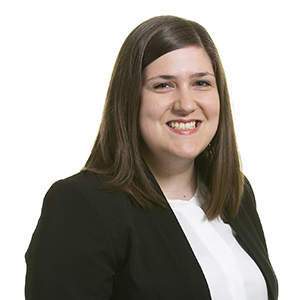
A recent High Court decision has shed light on the implications of the civil court fees introduced on 9 March 2015 in intellectual property claims. In Lifestyles Equities CV & Anor v Sportsdirect.com Retail Ltd and others [2016] EWHC 2092, the court has clarified the assessment of fees applying to non-monetary claims.
It has been confirmed that an enquiry as to damages or, at the Claimant’s election, an account of profits, is not necessarily a monetary claim. Therefore, the issue fee for seeking monetary relief need not necessarily be paid (or payable) at the beginning of these claims, provided that a suitable undertaking to make payment of the necessary issue fee as directed by the court is given as part of the claim form.
This means that the potentially substantial issue fee for monetary claims – £10,000 where the claim is in excess of £200,000 – may be deferred until a later time, meaning that these intended deterrent fees may not be as effective in intellectual property cases. This may lead to an increase in the number of claims which proceed to issue without seeking resolution in the pre-action stages.
Fee changes
Under the revised fee structure introduced in March 2015 and amended in July 2016, money claims valued between £10,000 and £200,000 incur a court fee of five per cent of the amount being claimed. This calculation is subject to a maximum cap of £10,000, which is also the applicable fee for money claims of an unspecified value and/or in excess of £200,000.
This means that, when deciding whether to issue a claim, a prospective claimant needs to factor in a potentially large issue fee on top of other costs incurred in the initial stages. The type of remedy sought (i.e. a "money" or non-money" claim) will determine the fee payable.
Failure to pay the required court fee could result in a case being stayed pending correct payment (although a successful claimant could stand to recover the issue fee from a defendant, if so ordered by the court). While an application to stay a proceeding could be tactically advantageous to a defendant, such an application could add time and cost to a claimant's budget, which could potentially be recovered from a defendant if the claimant is successful at trial.
Background
In the current claim, the Defendants submitted an application to stay claims on the basis that the appropriate court fee had not been paid by the Claimants. The crux of the dispute was for the court to determine whether the correct fee category had been applied in the claim form.
The claim involved the alleged infringement of a registered trade mark and/or inducement of breach of contract of an unspecified value. The relief sought by the Claimants includes:
- "an enquiry as to damages suffered by the Claimants and each of them by reason of the aforesaid acts of inducing WCC to breach the agreement"
- "an enquiry as to damages suffered by the Claimants and each of them by reason of the aforesaid acts of trade mark infringement, alternatively at the Claimants’ option an account of profits accrued to the Defendants or any of them by such acts."
The court fee paid by the claimants was £480, which was at the time the applicable fee for claims seeking remedies other than to recover a sum of money (non-money claims) under the Court Proceedings Fees Order 2008 (SI 2008/1053).
"Non-money claims"
The existence of the claim for inducing breach of contract (which was considered a standalone claim) was significant in this case. The court found this cause of action to be a claim for damages, and thus the relief claimed as a whole could not be classed a non-money claim. Consequently, the Claimants were required to pay the additional fee of £10,000 in respect of its monetary claims.
Vitally, the judge also stated that "if this claim had been only for trade mark infringement, then I would have held that the appropriate fee had been paid."
Usually, intellectual property claims are split into two stages: a trial dealing with liability, followed by a trial dealing with quantum thereafter. As a result, it is not until liability has been established that a claimant will (or will be able to) pursue and make an election as to an inquiry as to damages or an account of profits. Until the point at which the election is made, it is argued, no claim to recover money has been brought and therefore the money claim fee is not payable.
Commentary
This decision makes clear that a prospective claimant will not be required to front-load costs in order to bring a claim for breach of intellectual property rights where a split trial is anticipated. The lower fee for non-monetary claims (which, at the time of writing, is £528) is sufficient, provided that the claim form clearly specifies that the remedy sought comprises non-money relief and an undertaking is provided for payment of any additional court fee as directed by the court at the appropriate time.
However, given the financial imperatives to increase income to the courts from enhanced fees, there is potential that this approach may change in subsequent decisions, particularly if there is an influx of intellectual property claims benefitting from this ‘loop hole’ in the issue fee system.







